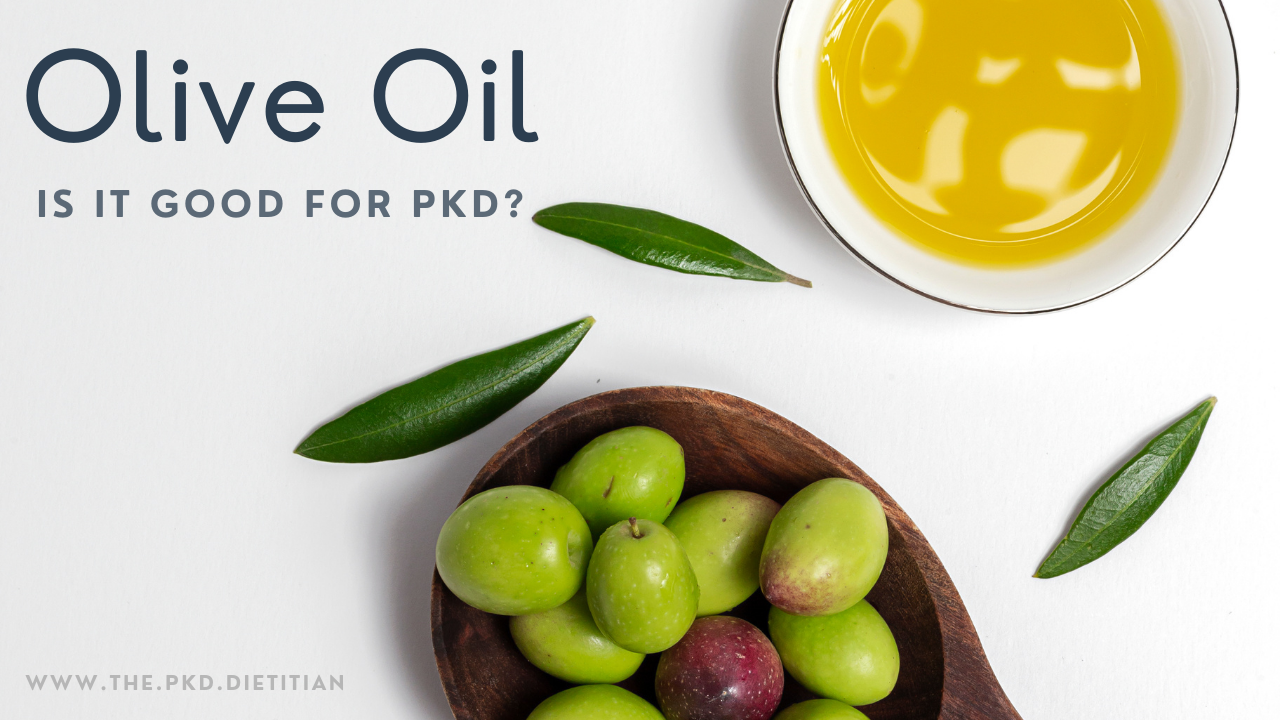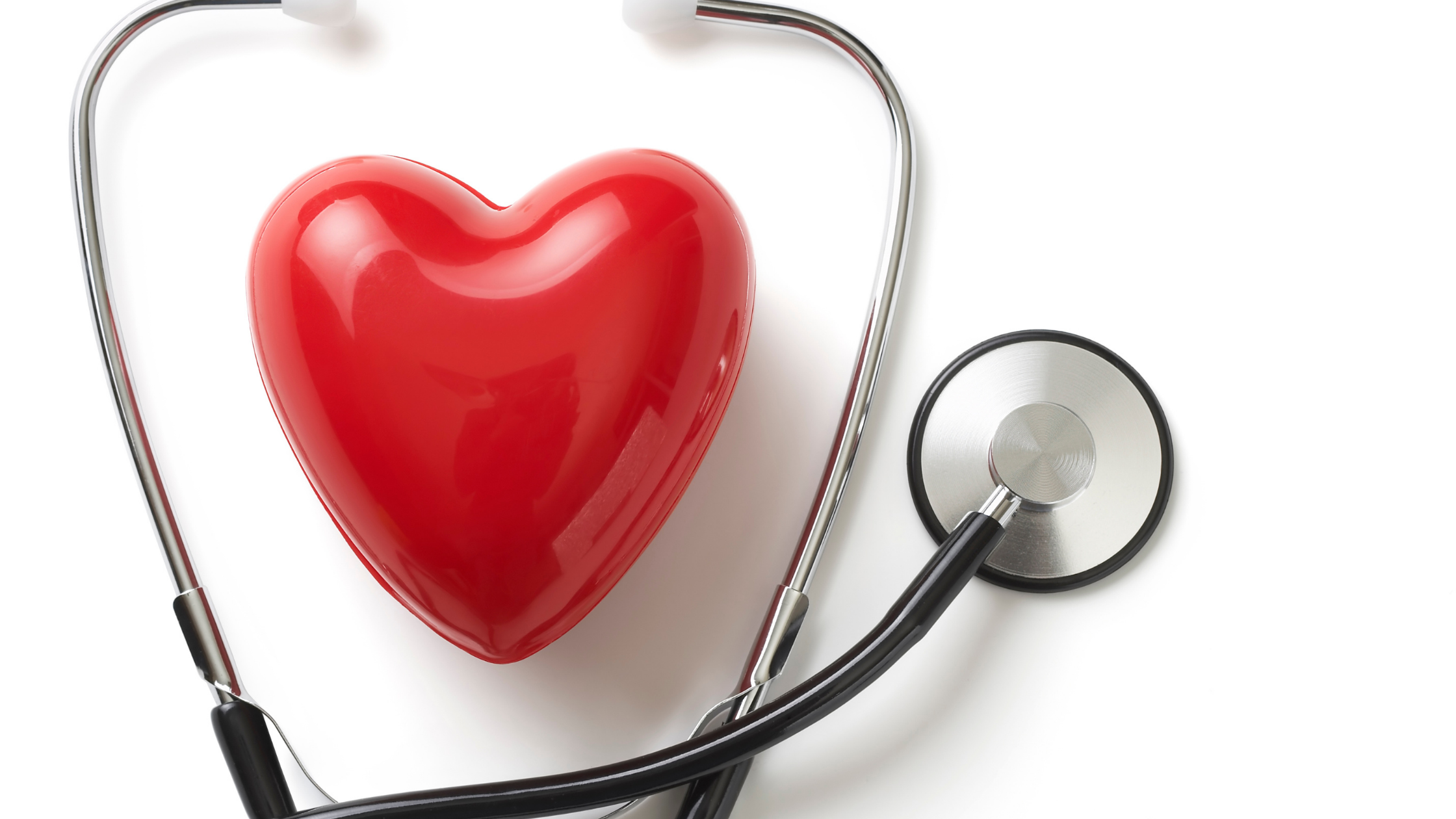
Is Olive Oil Good For PKD Health?
Feb 22, 2022February is "American Heart Month", appropriately your monthly PKD Health intention is to FOCUS ON HEALTHY FAT!
Got questions about what fat is healthy? Wondering if dietary fat is connected to heart disease? Join the confusion club. There is a lot of misinformation out there, but also in previously published research regarding dietary fat. Let's sort this out together.
Extra Virgin Olive Oil (EVOO)
All fat sources, either as oil or in food naturally, contain a combination of different fat types. The two main categories of fat are saturated and unsaturated. Extra Virgin Olive Oil (EVOO) has a high concentration of monounsaturated fatty acids (MUFA). Yes, those same MUFAs that are connected with healthier blood lipid patterns and better blood pressure levels. Both are important to PKD health.
The benefits and protective components of olive oil, specifically EVOO, are well studied regarding heart health. But that isn’t all, EVOO has a wide range of benefits that are linked with intake.
Does Type of Olive Oil Matter?
EVOO comes from mechanically pressing, or crushing fresh olives – which by the way are officially a fruit – and extracting the oil. There are many different types of olive oil on the shelf (light olive oil, olive oil, EVOO, etc.). Of them, you will reap the most health benefits from extra virgin olive oil. EVOO is the highest grade and least processed of all the olive oils. It is rich in antioxidants and polyphenols, the anti-inflammatory components of EVOO which help protect your cells against damage and oxidative free radicals. EVOO is a staple in the Mediterranean diet, intake of up to 4 tablespoons a day isn’t uncommon. Research has shown that a large portion of the heart health benefits associated with a Mediterranean diet can be attributed to extra virgin olive oil consumption.
What makes EVOO so beneficial for health?
Antioxidants
Extra virgin olive oil is especially rich in antioxidants. Antioxidants are compounds that help fight inflammation and protect cholesterol from oxidization. Both of which help decrease the risk of heart disease. It is the oxidized low-density lipoprotein (LDL cholesterol)1 that is strongly associated with heart disease and plaque buildup2. Antioxidants help eliminate free radicals in our body, essentially scavenging for and neutralizing them.
Polyphenols
Extra virgin olive oil is packed with polyphenols3, compounds in plant food with potent antioxidant properties4. There are many types of polyphenols in EVOO which help combat the oxidative stress that contributes to many diseases. Research strongly suggests that polyphenols reduce and/or slow down the progression of cardiovascular disease.
Fatty Acid Profile
Oleic acid is the main fatty acid in EVOO. It has been shown to help reduce inflammatory markers like C-reactive protein (CRP)5. Higher levels of inflammation and inflammatory markers are associated with a higher risk of cardiovascular disease. Intake of EVOO, with its fatty acid profile, is connected with a reduced risks of cardiovascular disease6. The U.S. Food and Drug Administration (FDA) supports the claim that consuming 1 ½ tablespoons of oleic acid-rich oils, including olive oil, may reduce the risk of coronary heart disease. Extra Virgin Olive is a particularly good addition to your diet if you suffer from any chronic inflammatory condition, in which PKD and CKD both have chronic inflammation.
EVOO and Heart Health
Hundreds of studies have shown that increased consumption of extra virgin olive oil is linked to a lower risk of heart disease and stroke. Here are some of the research-backed health benefits of EVOO against heart disease.
- Helps decrease inflammation - inflammation is a key driver of heart disease.
- Helps protect LDL cholesterol from oxidation7 -oxidized LDL cause damage, a factor in the development of heart disease!
- Helps improve blood vessel health8,9 - improves the function of blood vessel lining.
- Shown to help lower blood pressure10,11 - research shows a connection between increased intake of EVOO and lower blood pressure.

Know this though, adding EVOO on top of a highly processed or a western-style diet is not a magic solution. The whole makeup of what you eat works together. Looking at the Omni Heart Study, lower cardiovascular risk was significantly greater when EVOO, in conjunction with whole food patterns, replaced a carb-rich diet. Your first step to benefiting from EVOO intake is to replace your refined oils with it. Super easy step. Toss those canola and soybean oils out!
Nutritional Profile
*From the USDA’s FoodData Central
A tablespoon of EVOO, on average, contains:
- 119 calories
- 13.5 g fat
- Vitamin E - 13% of the daily value (DV)
- Vitamin K - 7% of the daily value (DV)
- And is made up of 73% MUFA, 14% saturated fat, and 11% PUFA
How to buy the “good stuff”?
- Check for a Harvest Date on the bottle.*
- Dark bottle - EVOO is sensitive to light and heat and this will help protect it from damage.
- Look for a Quality Seal.
A good brand you can find at most grocery stores is California Ranch EVOO.
*You can also use the Best Buy date, however, this isn't as reliable because it is from the date the EVOO was bottled.
How EVOO is certified
- How EVOO is certified
- Certified Olive Oils
Bottom line, extra virgin olive oil is a wonderful addition to your diet that's packed with benefits. It really is a flavorful, optimal fat choice!
Happy Eating!
Diana, The PKDietitian

